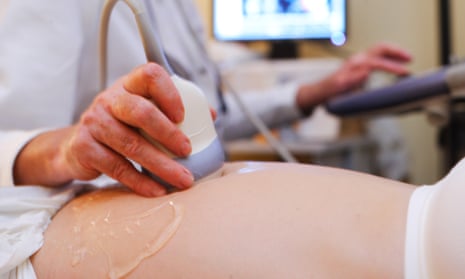Mothers in the UK are three times more likely to die around the time of pregnancy compared with those in Norway, according to an international analysis of data.
Although maternal mortality is at historic lows in high-income countries, it remains an important indicator of quality of care, health system performance and, more specifically, maternal care. The comparison of maternal mortality rates in eight European countries was published in the BMJ.
Researchers found that Slovakia had the highest maternal death rate among the countries studied. The UK had the second highest.
The findings come after a major review found that maternal mortality rates had risen in the UK.
The study, by an international team of researchers including academics from the University of Oxford, examined data on millions of live births across Denmark, Finland, France, Italy, the Netherlands, Norway, Slovakia and the UK.
The UK data included information on more than 2 million live births between 2016 and 2018.
They found that the rates of death among mothers in pregnancy and up to 42 days after the birth of their children varied from 2.7 per 100,000 live births in Norway to 10.9 in Slovakia. In the UK, there were 9.6 maternal deaths for every 100,000 babies born.
Across all eight nations, maternal deaths were higher in the youngest and oldest mothers, along with those born abroad or from minority ethnic backgrounds in seven of the countries.
after newsletter promotion
Researchers said heart disease and suicide were the leading causes of death. This, the researchers said, “underlines the importance of women’s mental and cardiovascular health and the need to develop strategies before, during, and after pregnancy to prevent the morbidity and mortality these problems can cause”.
In the UK, blood clots were also a leading cause of death among new mothers.
“Despite its rarity in high-income countries, maternal mortality remains an important health indicator of the quality of the care provided and health system performance,” the authors wrote in their study.
“Maternal mortality ratios up to 42 days after the end of pregnancy varied by a factor of four, from 2.7 and 3.4 per 100,000 live births in Norway and Denmark to 9.6 in the UK and 10.9 in Slovakia.”
The authors added: “Cardiovascular diseases and mental health in women during and after pregnancy must be prioritised in all countries.” They called on nations to learn best practices from each other to reduce deaths.
In a linked editorial, Prof Andrew Shennan of King’s College London warned that variations in maternal mortality “remain one of the starkest health injustices in the world”.
It comes after the latest MBRRACE report – a leading review tracking the health of mothers and their babies – suggested that maternal deaths in the UK and Ireland are rising.
The report found that 229 women died during or up to six weeks after the end of pregnancy in 2018 to 2020. This gives a maternal mortality rate of 10.9 women per 100,000 babies born – 24% higher than in 2017-19.










